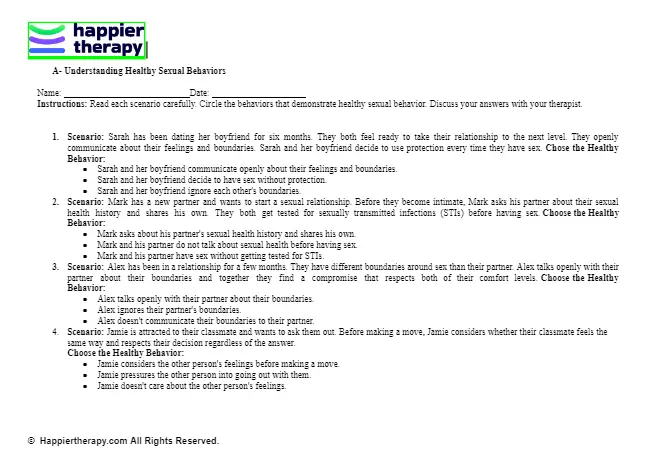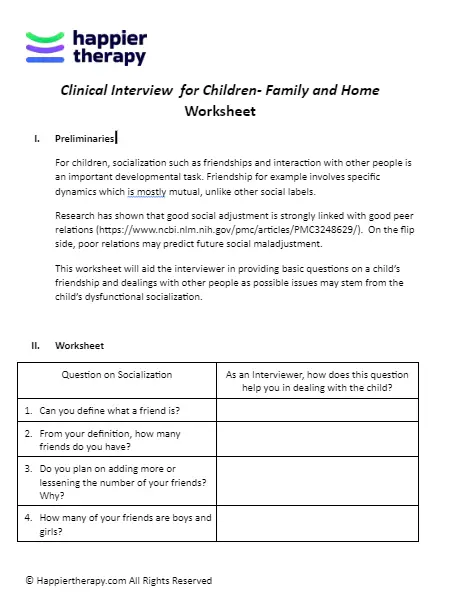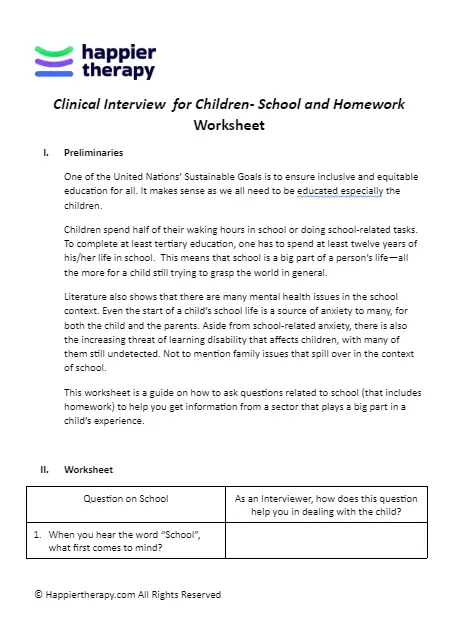Multisystemic Therapy Worksheet
Download Worksheet
What is the theory behind this Multisystemic Therapy Worksheet?
Multisystemic therapy is an intensive family and community based intervention program that was designed for juvenile offenders but later adjusted to include adolescents displaying serious externalising behaviours and substance abuse. It targets adolescents that are at risk of being taken away from their home for being a danger to self and others. It includes a variety of therapy techniques conducted at individual and family level with the aim of reducing the youth’s criminal behaviour.
How will the worksheet help?
This worksheet aims to teach perspective taking which is an important skill needed to understand the viewpoint of others. Cultivating this skill can help adolescents evaluate the perspective of others in social settings which can avoid hostility and violent reactions.
How to use the worksheet
Have a discussion in session about the importance of perspective taking. Discuss social cues and how they can help determine the feelings and thoughts of another person. Once the topic is understood ask the client to complete the activity.

 By
By



